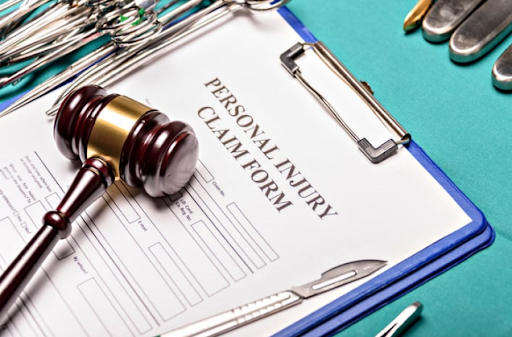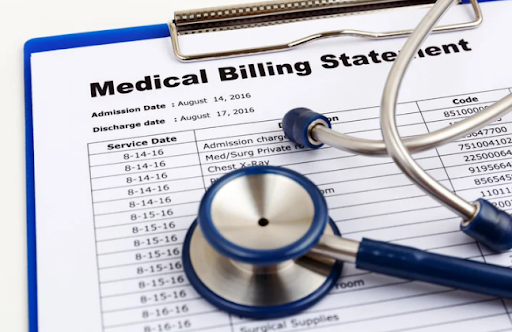How Personal Injury Settlements Are Divided in Georgia?

When you’re injured due to someone else’s negligence in Georgia, a personal injury claim can help you recover damages for your losses. However, what happens after your case is resolved? How is the settlement actually divided? Understanding how personal injury settlements are broken down helps you know what to expect when the check finally arrives.
This article explains how settlements are distributed, who gets paid, what affects the final amount you take home, and why having the right legal team matters. If you have any questions, call us today for a free consultation!
What Is a Personal Injury Settlement?
A personal injury settlement is a financial agreement between the injured party (plaintiff) and the party at fault (defendant), typically negotiated through their insurance company. Settlements are meant to compensate for:
- Medical expenses
- Lost wages
- Pain and suffering
- Emotional distress
- Property damage
- Future care needs
Most personal injury cases in Georgia are resolved through settlements rather than court trials.
Where Your Settlement Money Goes
Once a settlement is reached, the money doesn’t go straight into the injured person’s pocket. There are several parties who may have a legal claim to a portion of the funds. Here’s the typical order:
1. Attorney’s Fees
In Georgia, most personal injury lawyers work on a contingency fee basis, meaning they only get paid if they recover money for you. The contingency fee is usually between 33% to 40% of the total settlement. For example, if your settlement is $150,000. Your lawyer’s fee at 33% is $49,500. This is the first amount that’s deducted from your settlement.
2. Case Expenses and Litigation Costs
Before any settlement funds are distributed, personal injury lawyers typically deduct case-related expenses they’ve fronted on your behalf. These costs are necessary to build a strong case, and they vary based on case complexity. Common expenses include:
- Filing fees: The cost to file your lawsuit in court. These vary by jurisdiction, but are required to initiate legal proceedings.
- Expert witness fees: Specialists like accident reconstructionists or medical experts are often hired to support your case with credible testimony.
- Court reporter and deposition costs: Fees paid to professionals who record and transcribe depositions for use as official legal records. A deposition is a formal, out-of-court interview where a witness gives sworn testimony. This testimony is recorded and can be used later during trial or settlement negotiations.
- Medical records and document retrieval: Gathering detailed medical files and supporting documentation from hospitals or providers comes with administrative fees.
- Private investigator services: In some cases, investigators are used to uncover critical evidence or locate witnesses.
These litigation costs are typically paid back to the law firm from your final settlement amount, only after your lawyer wins or resolves your case.
3. Medical Liens and Bills

A medical lien is a legal claim placed by a healthcare provider or insurer to recover the cost of treatment from a personal injury settlement. In Georgia, if a hospital or doctor treats you after an accident, they may file a lien with the county to ensure they’re reimbursed once your case settles.
These liens must be paid from the settlement before you receive the remainder. However, your lawyer can often negotiate these amounts down, especially when the billed charges are excessive or the treatment wasn’t directly related to the accident. Understanding and managing liens is critical to maximizing your final compensation.
4. Remaining Funds to the Client
After attorney fees, expenses, and medical liens are paid, the remaining balance goes to you. This is your compensation for pain, suffering, future losses, and any remaining damages not covered elsewhere.
Factors That Affect How Much You Take Home

Your final settlement amount may be lower than expected after certain deductions. Here’s what typically affects your take-home payout:
- Severity of Injuries: More serious injuries often mean higher settlements, but they also bring higher medical expenses. Long-term care, surgeries, and rehabilitation can take up a big portion of the payout. The more extensive the treatment and recovery, the more the total compensation may be reduced by these costs.
- Comparative Fault (Shared Blame): Georgia follows a modified comparative negligence rule. If you’re partly at fault, your payout is reduced by your percentage of responsibility. If you’re 50% or more at fault, you do not receive any compensation.
- Outstanding Medical Bills and Repayment Agreements: If your medical treatment was covered through health insurance, workers’ comp, or providers offering care on credit, those parties may be reimbursed from your settlement. This reduces your final payout until their claims are satisfied.
- Legal and Case Expenses: Your lawyer may advance costs like filing fees, expert witness fees, and investigation expenses. These are reimbursed from your settlement before you’re paid.
- Attorney’s Fees: Most personal injury lawyers work on a contingency basis, usually charging 33–40% of the total recovery. This fee is deducted before your portion is disbursed.
- Length and Complexity of the Case: Fast settlements typically involve fewer costs. If your case goes to trial, expect more expenses and delays, though you might receive a larger award.
- Insurance Company Behavior: Some insurers are quicker to offer fair settlements, while others delay or undervalue claims. If the insurer disputes fault or the severity of your injuries, it may reduce what you take home or lead to a longer legal process.
Are Personal Injury Settlements Taxable in Georgia?
In most cases, personal injury settlements are not taxable under federal or Georgia state law. Here’s a breakdown:
Non-Taxable:
- Compensation for physical injuries
- Medical bills
- Emotional distress linked to physical harm
Taxable:
- Interest earned on the settlement
- Punitive damages, which are rare
- Compensation for non-physical injuries or breach of contract, in some cases
Always consult a tax advisor if you’re unsure.
Tips to Maximize Your Own Settlement
If you want to walk away with the most money possible from your personal injury settlement, there are practical steps you can take to strengthen your case and avoid losing value. Here are several tips:
- Get Medical Treatment Immediately: Delays in seeking care can hurt your case. Insurance companies may argue your injuries weren’t serious or weren’t caused by the accident. Always see a doctor as soon as possible and follow their treatment plan.
- Document Everything: Save medical bills, accident reports, photos, repair estimates, and any other proof related to your injury. The more documentation you have, the harder it is for insurers to downplay your claim.
- Avoid Giving Recorded Statements: Insurers may ask for a recorded statement early in the process. It's usually best to decline until you’ve spoken with a lawyer. These recordings can be used against you later.
- Don’t Post About Your Case Online: Social media posts, even seemingly harmless ones, can be misinterpreted or used to undermine your injury claims. Stay offline or keep posts neutral until your case is resolved.
- Understand the Full Value of Your Claim: Many people only consider their immediate medical bills. But your claim can include lost wages, future treatment costs, emotional distress, pain and suffering, and more.
- Consult with a Personal Injury Lawyer: An experienced injury lawyer can negotiate more effectively with insurers, handle paperwork, and fight for a better settlement. Most work on contingency, so you pay nothing up front.
- Be Patient During Negotiations: Quick settlements are usually lower ones. If your lawyer recommends waiting or pushing back, it’s because they believe you can get more.
After a Settlement, Structured Settlements vs. Lump Sum
In some cases, especially with large settlements or minors involved, you may choose or be offered a structured settlement. This provides payments over time instead of one lump sum.
Lump Sum Payments
This is a one-time payment of the full settlement amount. It offers immediate access to funds, which can be helpful for paying off large debts, medical expenses, or making major life adjustments. However, it requires careful budgeting, since the money won’t be replenished.
Structured Settlements
In this arrangement, you receive payments in regular installments over months or years. This can provide long-term financial stability, especially for those with ongoing medical needs or reduced earning capacity. Structured settlements are often tax-free and can be tailored to meet specific financial goals or future expenses.
Which Option Is Better?
Choosing between the two depends on your financial situation, future care needs, and comfort with managing large sums. Most adult plaintiffs opt for a lump-sum payout unless advised otherwise. A personal injury lawyer or financial advisor can help evaluate the pros and cons based on your unique circumstances.
Timeframe for Receiving Your Settlement
After a settlement agreement is signed, it typically takes 2 to 6 weeks to receive the funds. Delays may happen if:
- There are disputes over medical liens
- The insurance company moves slowly
- The case involves minors or court approval
Why Choose Seay/Felton LLC for Your Personal Injury Settlement?
When navigating the complexities of personal injury settlements in Georgia, having an experienced and committed legal team makes a significant difference. At Seay/Felton LLC Trial Lawyers, we are more than just legal professionals; we are passionate advocates for the injured.
Here’s what sets us apart:
- Decades of Combined Experience: Our team has handled a wide range of personal injury cases, from car accidents to catastrophic injuries, helping clients recover millions in compensation.
- Thorough Settlement Analysis: We work closely with clients to identify every category of damage, including medical costs, lost income, emotional suffering, and long-term care needs.
- Protection From Unfair Reductions: We identify and negotiate liens from healthcare providers, insurers, or government entities, so you walk away with more of your settlement.
- Transparent Communication: You’ll always know where your case stands. We keep you informed and empowered every step of the way.
- Results-Driven Representation: If the insurance company fails to act in good faith, we are ready to take your case to trial to pursue full and fair compensation.
When you choose Seay/Felton LLC, you’re choosing a team that puts your recovery, your rights, and your future first.
Contact Our Injury Lawyers Today
Understanding how personal injury settlements are divided in Georgia can prepare you for what to expect and help you avoid surprises. While the process involves multiple steps and deductions, working with an experienced attorney ensures you’re treated fairly and compensated fully.
Whether you’re dealing with hospital bills, lost income, or pain that’s changed your life, you deserve representation that protects your interests and maximizes your recovery.
Contact Seay/Felton LLC Trial Lawyers to get trusted guidance from a team with a record of success in Georgia personal injury cases.

